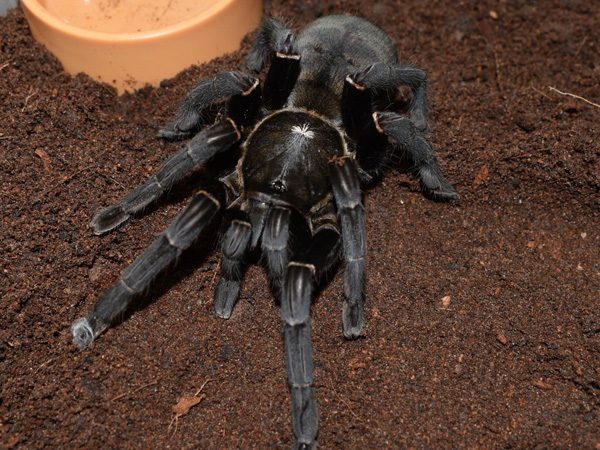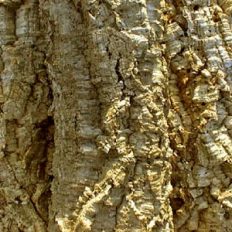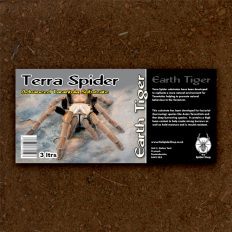Species Info:
Origin
Lifestyle
Temp
Humidity
Leg Span
Disposition
Suitability
A beautiful Asian Earth Tiger! Females totally justify their common name – robust and velvety jet black with greenish sheen on the carapace just after their moult. This species is a stunning species. This species has been in the hobby a while though captive bred spiderlings are rarely seen. In the wild this species inhabits tropical forested areas where they excavate a deep burrow in the moistened soil, usually the area surrounding the entrance is covered in silk. In captivity it requires a thick layer of humid substrate deep enough to establish the burrow, it is also one of the main factors for succesful breeding. You will need to make sure the enclosure is also well ventilated to prevent mold growth.
For a long time a similar species is sometimes sold under the same name but is infact a different species. Former Haplopelma sp “aureopilosum” (Commercial name) or Haplopelma chrysotrix (invalid name) was recently described as Ornithoctonus aureotibialis (Von Wirth & Striffler, 2005) from which can be easily seperated from the true H.minax by the absence of yellow-golden setae on the underside of the front legs. It is now also considered that the pet trade / falsely described Haplopelma vonwirthi (By G.schmidt in 2005 – “nomen nudum”) from Vietnam is really the regional variant of this species, as well as possibly some of other Haplopelma spp. sold as undescribed. So the real distrubution range would appear to be wider than officially listed.
As with many Asian Tarantulas it is an aggressive and defensive species. There have been more captive breedings in the last few years and spiderlings have a good appetite, grow fast and reach maturity after about 2 years.



